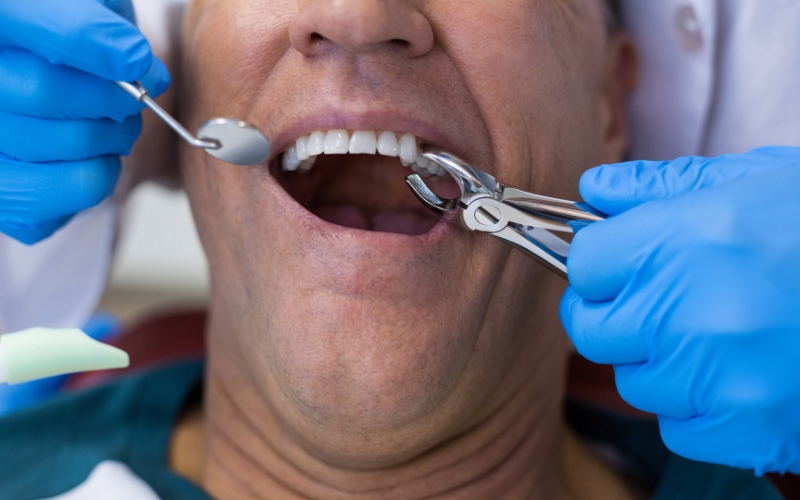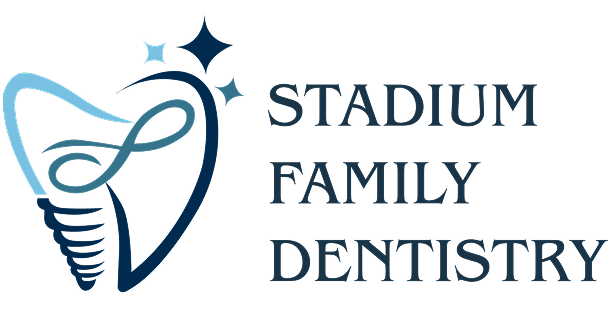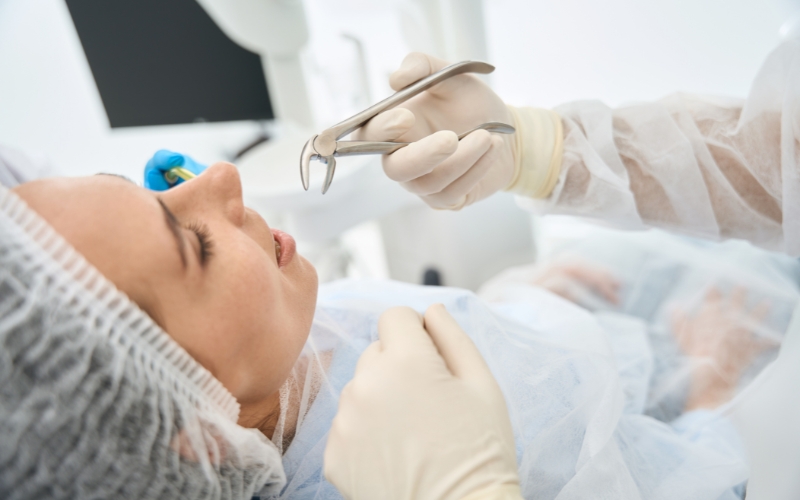
Tooth extraction is often seen as a last option when no other oral care option is left. While extractions can be necessary for various reasons—such as severe decay, infection, or overcrowding—the good news is that many tooth extractions can be avoided with proper care and attention. Preventive dental care can significantly reduce your risk of needing a tooth extraction and maintain a healthier, stronger smile for years. This blog discusses practical strategies to help you prevent tooth extraction and keep your teeth in optimal condition.
Maintain a Consistent Oral Hygiene Routine
The foundation of healthy teeth begins with good oral hygiene. Brushing, flossing, and rinsing periodically are your first defense against tooth decay, gum disease, and other issues that may lead to extraction. Here are some key tips for effective oral hygiene:
- Brush Twice a Day: Use fluoride toothpaste and a soft-bristled toothbrush deep to clean your teeth for two minutes at least twice daily. Clean your teeth properly, including the fronts, backs, and chewing surfaces.
- Floss Daily: Flossing removes food particles and plaque between teeth in areas your toothbrush can’t reach. It also helps prevent cavities and gum diseases, which are leading factors of tooth loss.
- Rinse with Mouthwash: Any antimicrobial mouthwash helps kill bacteria and freshen your breath. It can also eliminate the risk of gum infections, one of the leading causes of tooth loss.
Visit Your Dentist Regularly for Check-ups and Cleanings
Regular dental check-ups are needed to maintain oral hygiene and catch problems before they become serious. Dentists can easily identify early signs of tooth decay, gum infections, and other issues that might require extraction later on.
- Professional Cleanings: Even if you brush and floss regularly, stains can still develop on your teeth, especially in hard-to-reach areas. A professional cleaning every six months removes this buildup and helps prevent cavities and oral infections.
- Early Detection: By visiting your dentist regularly, they can spot problems early—such as cavities or gum recession—before they require extraction or more invasive treatments. Early detection can make treatments like fillings or root canals possible, thus preserving your natural teeth.
Avoid Tobacco Products
Tobacco use is one of the most significant contributors to poor oral health. Smoking or chewing tobacco can lead to dental diseases, including gum disease, tooth decay, and oral cancer—all of which can result in tooth loss or the need for extraction.
- Gum Disease: Smoking and chewing tobacco significantly increase your chance of gum disease, which is a leading cause of tooth loss. Gum disease starts as gingivitis (inflammation of the gums) and can progress to periodontitis, which can damage the supporting structures of your teeth and lead to tooth extraction.
- Tooth Discoloration and Decay: Tobacco also contributes to tooth discoloration and increases the risk of cavities, which, if untreated, can eventually lead to extraction.
You can do nothing better than quitting tobacco products for oral and overall health.
Protect Your Teeth from Injury
Accidents happen; a traumatic event like a fall or sports injury can sometimes result in a chipped or broken tooth. While tooth injuries can sometimes be repaired with fillings, crowns, or other treatments, severe trauma may require extraction if the tooth is beyond saving.
- Wear a Mouthguard: If you play body-contact sports or engage in activities that might lead to mouth injury, always wear a mouthguard. It will help prevent your teeth from being damaged. Custom-fitted mouthguards are available from dentists and oral medicine stores.
- Be Mindful of Your Teeth: Avoid using your teeth for purposes other than chewing food, such as opening bottles or tearing packages. Misusing your teeth can result in fractures, chips, or cracks that may require extraction if they cannot be repaired.
Eat a Tooth-Healthy Diet
Your diet plays a significant role in your dental health. A balanced, nutrient-rich diet helps strengthen your teeth and gums, while poor eating habits can lead to tooth decay, cavities, and gum disease. Check out a few dietary tips for maintaining healthy teeth:
- Limit Sugary Foods and Drinks: Sugary snacks, soda, and candy feed the bacteria in your mouth, which produce acids that attack tooth enamel and lead to cavities. Reducing your sugar intake can help protect your teeth from decay.
- Eat Foods Rich in Calcium: Calcium is essential for strong teeth and bones. Dairy products like milk, cheese, and yogurt, as well as leafy greens and fortified foods, are excellent sources of calcium.
- Consume Crunchy Fruits and Vegetables: Crunchy fruits and vegetables like apples, carrots, and celery stimulate saliva production, which helps neutralize acids in your mouth and wash away food particles.
- Drink Water: Water helps keep your mouth hydrated and neutralizes acids produced by food and bacteria. Periodically drinking water can help prevent cavities and support overall oral health.
Address Dental Problems Early
The earlier you address any dental problems, the less likely they are to require extraction. If you notice symptoms like tooth pain, sensitivity, swelling, or bleeding gums, don’t ignore them. Early intervention can prevent tooth extraction and the need for more invasive treatments later on.
- Fillings for Cavities: If you have a cavity, consider filling it as soon as possible. Untreated cavities can be dangerous, affecting the tooth’s structure and leading to the need for a root canal or extraction.
- Root Canals for Infected Teeth: If a tooth becomes infected, a root canal may be necessary to save the tooth. Root canals remove the infected tissue and restore the tooth, avoiding the need for extraction.
- Gum Disease Treatment: If you have gum problems, such as bleeding gums, bad breath, or loose teeth, seek treatment promptly. Early treatment can help prevent tooth loss due to gum disease.

